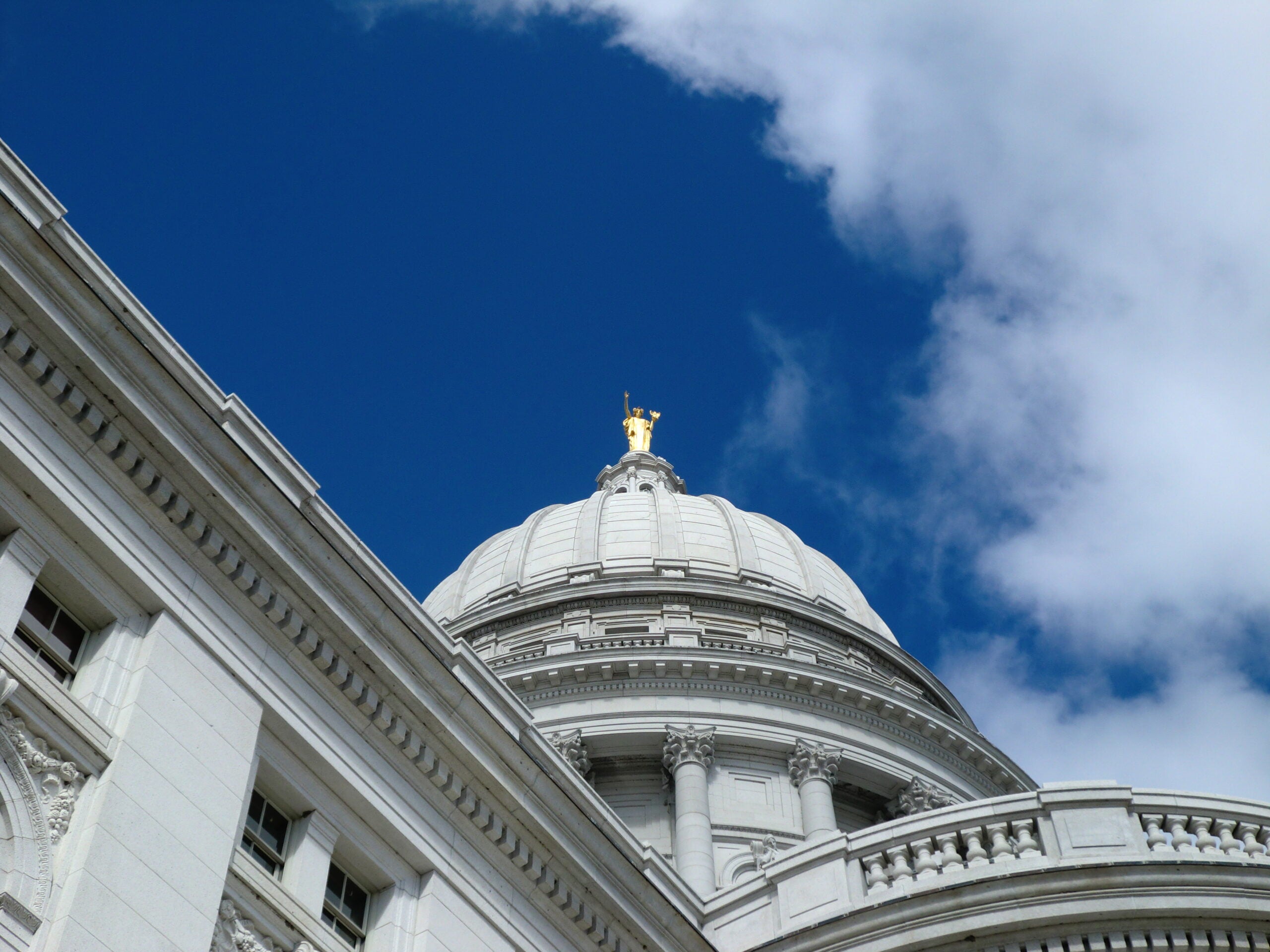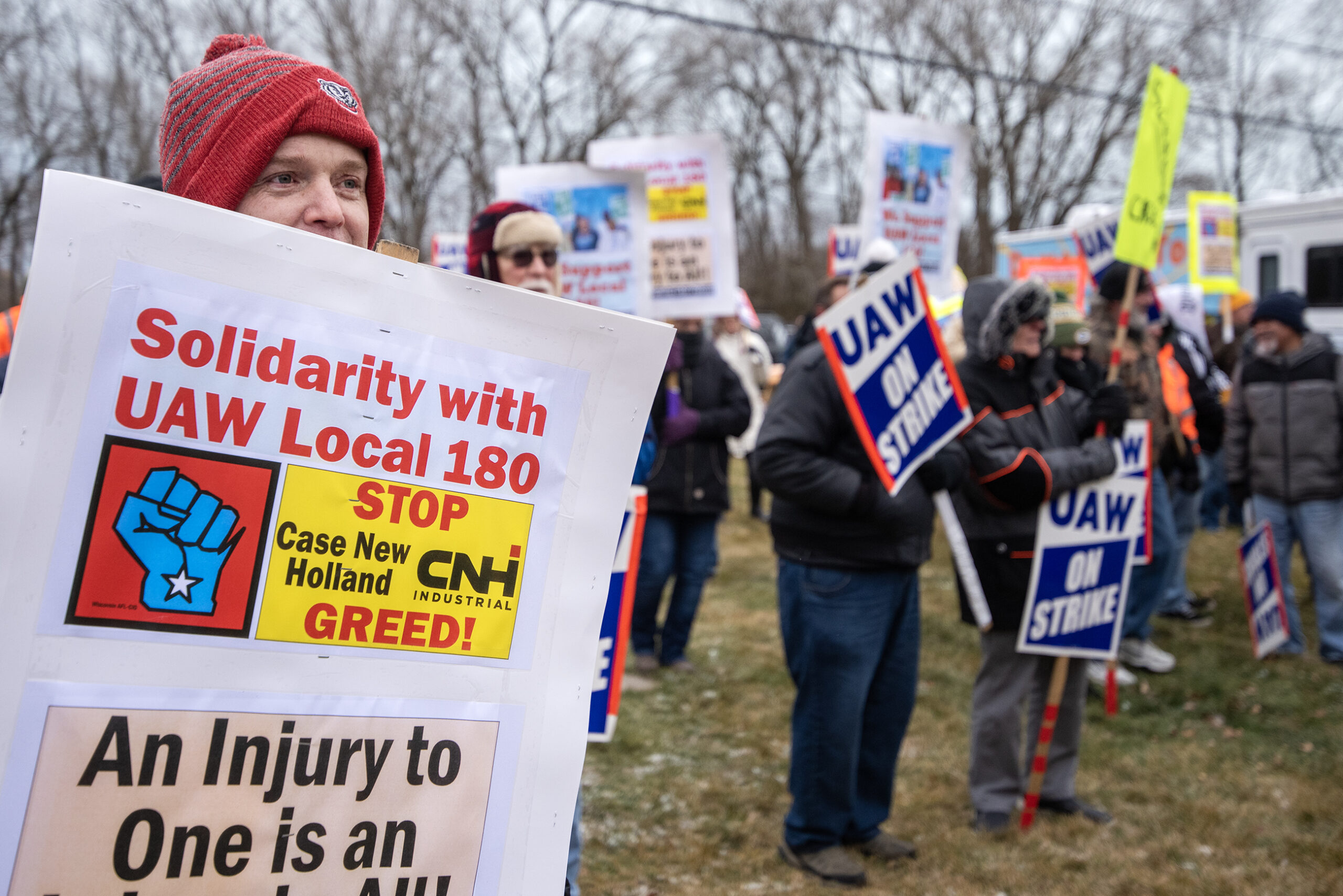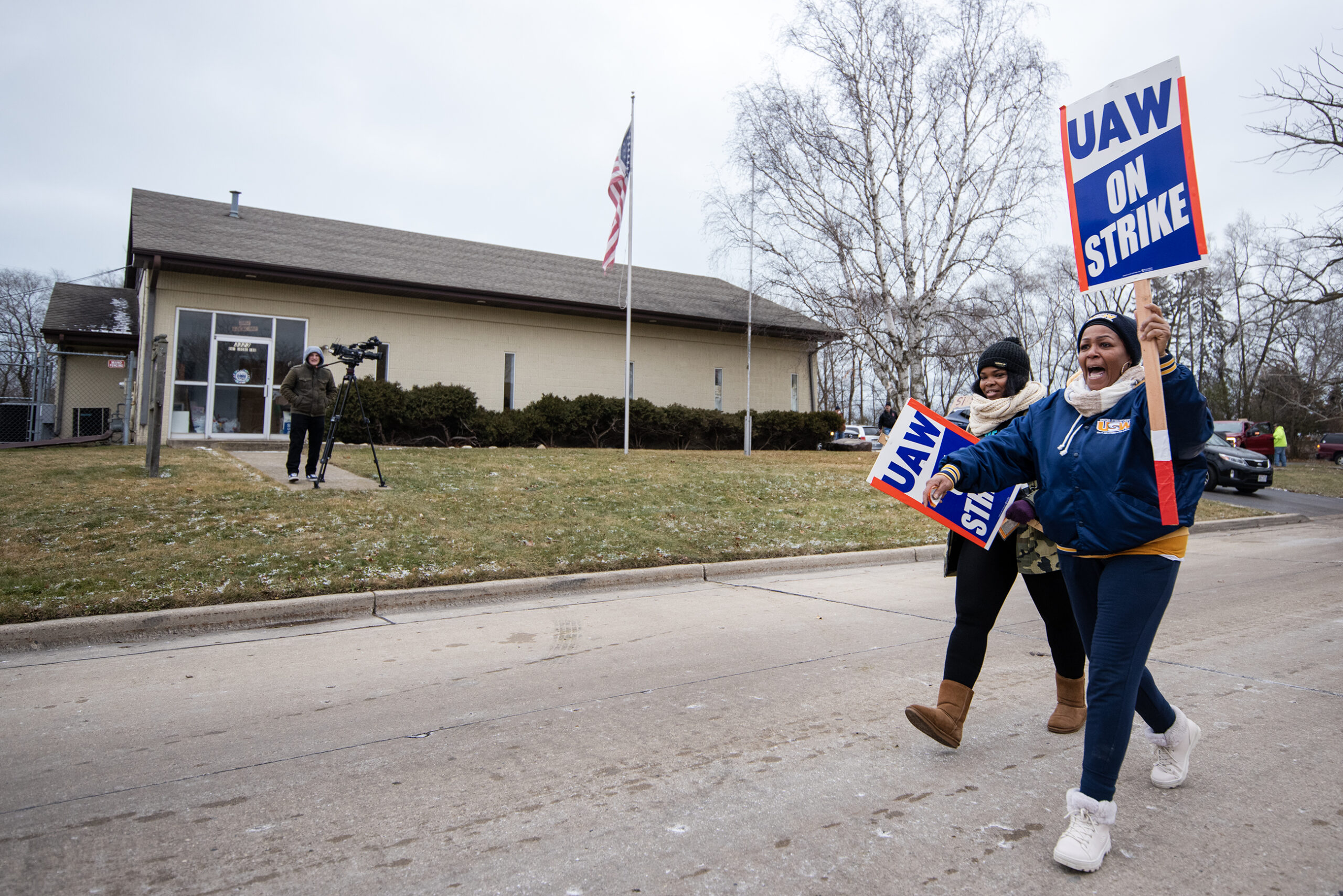A new study on the potential economic impact of right-to-work legislation in Wisconsin disputes claims that the law would be good for the state’s economy.
The study by University of Oregon economist Gordon Lafer argues that because such laws weaken the ability of unions to bargain for higher pay, the result is that wages for all workers tend to fall.
“Then there’s less pressure on non union employers and they can feel like maybe ‘I don’t need to give you as much benefits,’” Lafer said. “It’s not planned, it’s not conscious. It’s not a conspiracy. It’s just the normal way a competitive market works.”
Stay informed on the latest news
Sign up for WPR’s email newsletter.
But Scott Manley of Wisconsin Manufacturers and Commerce said right-to-work laws passed in Indiana and Michigan have actually had the opposite effect.
“Both of those states have consistently increased wages since they’ve enacted right-to-work laws,” said Manley.
Republican state lawmakers have said they plan to introduce right-to-work legislation in the current session. Rep. Chris Kapenga, a Republican from Delafield, said he will sponsor such a bill.
State Senate Leader Scott Fitzgerald (R-Juneau) wants legislators to debate the law after the April 7 election to fill the seat of former state Sen. Glen Grothman.
Currently, 24 other states have right-to-work laws on the books.
Wisconsin Public Radio, © Copyright 2024, Board of Regents of the University of Wisconsin System and Wisconsin Educational Communications Board.






